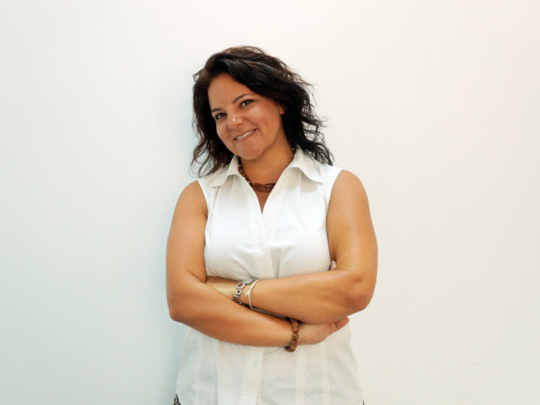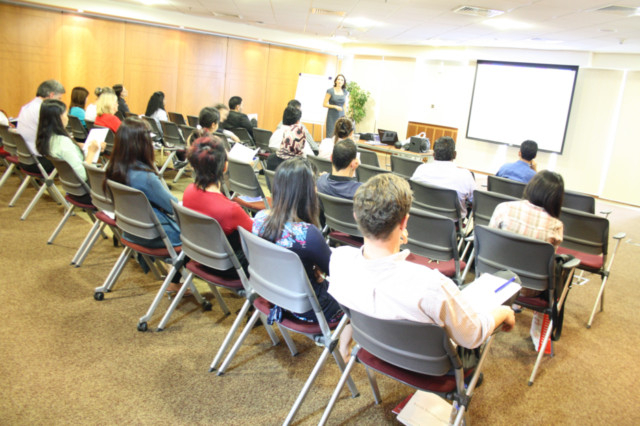
Whether you are ordering a pizza on the phone, striking idle conversation at a party or selling a product to a client – you need to make effective and relevant communication that can get people to comprehend what you are saying.
Public speaking is listed as one of the topmost fears in the life of most individuals. The art of presentation is like teaching someone life skills to deal with every situation. Once you have understood what it takes to be a good communicator, you have won half the battle.
Recognising the importance of effective public speaking, Eton Institute, one of the largest language training and professional development institutes, held a presentation skills workshop in Dubai recently, which was also attended by corporate executives.
“This workshop was targeted at a wide variety of people seeking individual or business success, looking to manage stress, hone leadership and public speaking skills,” said Agnieszka Chraniuk, Marketing Assistant at Eton. “People in all walks of life, be it meetings facilitators, seminar leaders, public speakers or individuals looking to improve their communication skills, benefited from it.”
Education spoke to Melissa Stahl, the Professional Development Manager at Eton Institute, who conducted the training workshop.
1. Why do you think presentation skills are important in life?
Presentation skills are important as public speaking tends to be the number one fear among people. You might be making a sales pitch, talking to your colleagues or doing public speaking — you need to communicate in different situations in life. You need to know the type of audience you are addressing. Once you have learnt the basic tricks, you can use the learning unequivocally in any situation.
These sessions supported participants with tips and tricks that make speaking in public more enjoyable and less terrifying.
When you are speaking in front of people and sharing ideas or thoughts, it is important to be engaging and confident so the audience gets the information you intend.
2. What were the modules of your workshop and what were they aimed at?
We shared techniques aimed to create compelling presentations, using visual aids such as flip charts, handouts and videos effectively and appropriately, and techniques to enhance audience engagement. We shared practical tips on maintaining confidence and overcoming nervousness and provided the opportunity for participants to practice their new set of skills.
3. Would you consider presentations skills being part of the more generic life skills that students must have in order to succeed?
The skills involved in the workshop are transferable to other aspects of work and life, particularly enhancing verbal communication skills, needs analysis, writing, non-verbal communication and audience engagement.
While these tasks are imperative for presentations, they are necessary for effective communication and influence or persuasion in day-to-day scenarios.













